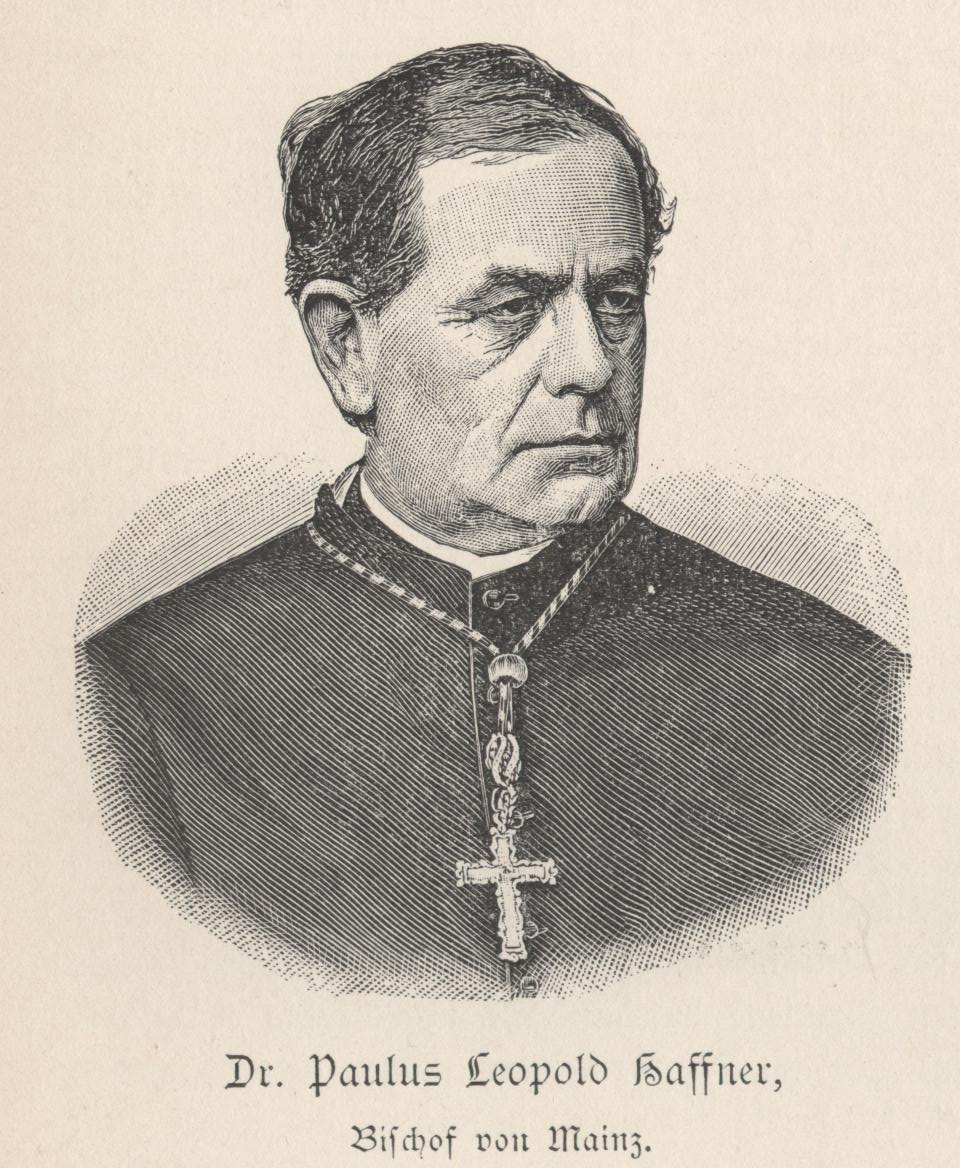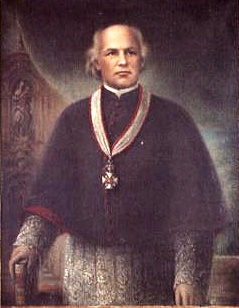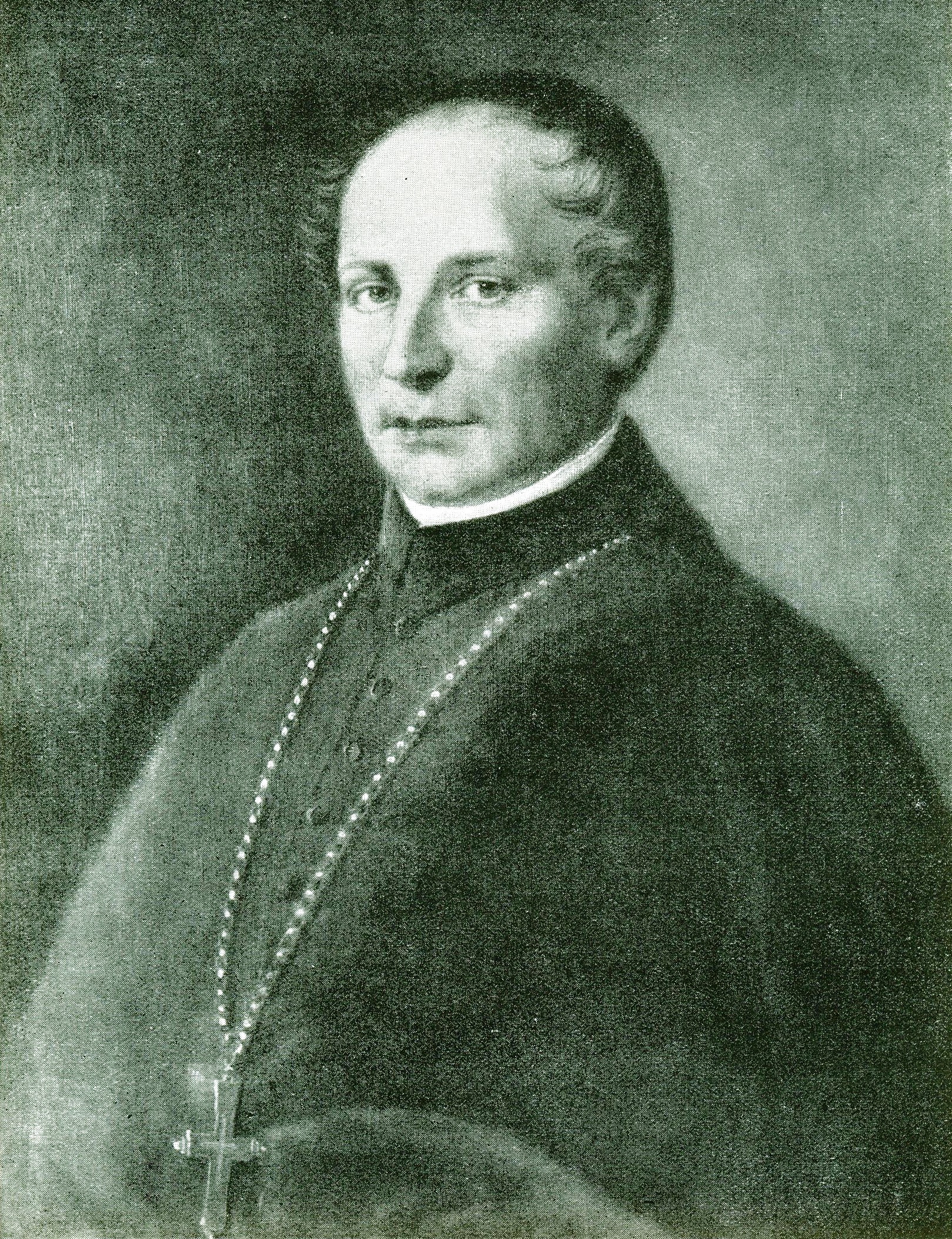|
Heinrich Bone
Heinrich Bone (25 September 181310 June 1893) was a German educator and hymnwriter. He wrote a reader for German studies which was used for higher education in Germany, Belgium, Luxembourg and Austria, until it was banned during the Kulturkampf. He published a hymnal, ''Cantate!'', which was used by several Catholic dioceses and became a model for common hymnals. Some of his own hymns, including paraphrases of Latin hymns, are part of recent hymnals, both Catholic and Protestant, such as "Komm, Schöpfer Geist, kehr bei uns ein" as a paraphrase of the 9th-century hymn for Pentecost, Veni Creator Spiritus. Life Born in Drolshagen, Bone was the eldest of six children. His parents, Mathäus Bone and his wife Elisabeth, née Kramer, ran a small button factory, an inn and engaged in farming. Bone attended the Progymnasium in Attendorn from 1825, afterwards the in Arnsberg, and from 1830 the , where he achieved the Abitur in 1831. He studied philology, philosophy and theology at the ... [...More Info...] [...Related Items...] OR: [Wikipedia] [Google] [Baidu] |
Drolshagen
Drolshagen is a town belonging to the district of Olpe in the ''Regierungsbezirk'' of Arnsberg in North Rhine-Westphalia, Germany, lying roughly 5 km west of Olpe. Geography Location Drolshagen lies in the heavily wooded ''Naturpark Ebbegebirge'' in the Sauerland. The area of the municipality of Drolshagen is characterized by heavily wooded low mountain ranges with altitudes close to 500 metres, flat tops and broad valleys in between. More than 40% of the municipal area is wooded. To the west where the municipal area ends is a steep drop of altitude and the view is open towards the plains of the river Rhine in the distance. Neighbouring communities Drolshagen borders on the following towns and communities, clockwise beginning in the northwest: Gummersbach, Meinerzhagen, Attendorn, Olpe, Wenden, Reichshof and Bergneustadt. Constituent communities Drolshagen's current municipal area comprises 58 communities of various sizes. *More than 1,000 inhabitants are fo ... [...More Info...] [...Related Items...] OR: [Wikipedia] [Google] [Baidu] |
Konrad Martin
Konrad Martin (18 May 1812, at Geismar, Province of Saxony – 16 July 1879, at Mont St Guibert, near Brussels, Belgium) was a Catholic Bishop of Paderborn. Life Konrad Martin studied first under an elder brother who was a priest, and later at the Gymnasium at Heiligenstadt. He studied theology and Oriental languages for two years at Munich under Ignaz von Döllinger and Joseph Franz von Allioli, then went to Halle where the famous Gesenius taught, and thence to Würzburg, where he passed the ''examen rigorosum'' for the degree of ''Doctor Theologiæ''. But he was compelled to leave Würzburg, and undergo the same examination in Münster, Westphalia, because the Prussian ministry forbade studying at South German universities and did not recognize their degrees.Schlager, Patricius. "Konrad Martin." ... [...More Info...] [...Related Items...] OR: [Wikipedia] [Google] [Baidu] |
Johann Anton Friedrich Baudri
Johann Anton Friedrich Baudri (b. 20 February 1804 in Elberfeld (today part of Wuppertal), d. 29 Juni 1893 in Cologne) was a German Roman Catholic priest, the Vicar General of the Roman Catholic Archdiocese of Cologne and the auxiliary bishop of Cologne. On 28 September 1849 Pope Gregory XVI nominated him as a titular bishop of Arethusa and auxiliary bishop of Cologne. Baudri was ordinated on 25 February 1850 in Cologne. His brother was Friedrich Baudri. Bibliography * Eduard Hegel: ''Das Erzbistum Köln zwischen der Restauration des 19. Jahrhunderts und der Restauration des 20. Jahrhunderts (=Geschichte des Erzbistums Köln, Vol. 5)'', Köln, 1987, p. 144 and next. * Heinrich Linn, Ultramontanismus in Köln. Domkapitular Baudri an der Seite Erzbischof Geissels während des Vormärz (= Studien zur Kölner Kirchengeschichte, Vol. 22), Siegburg 1987 References External links Works about Johann Anton Friedrich Baudriin the Catalog of the German National Library The ... [...More Info...] [...Related Items...] OR: [Wikipedia] [Google] [Baidu] |
Paul Leopold Haffner
Paul Leopold Haffner (21 January 1829, Horb am Neckar – 2 November 1899, Mainz) was a German Roman Catholic clergyman. From 1866 until his death he served as Bishop of Mainz The Diocese of Mainz, historically known in English as ''Mentz'' as well as by its French name ''Mayence'', is a Latin Church ecclesiastical territory or diocese of the Catholic Church in Germany. It was founded in 304, promoted in 780 to Metrop .... References External links *http://www.catholic-hierarchy.org/bishop/bhaffner.html category:1829 births category:1899 deaths category:Bishops of Mainz (1802-present) category:People from Horb am Neckar 19th-century German Roman Catholic bishops {{Germany-RC-bishop-stub ... [...More Info...] [...Related Items...] OR: [Wikipedia] [Google] [Baidu] |
Christoph Moufang
Franz Christoph Ignaz Moufang (17 February 1817 – 27 February 1890) was a German Catholic theologian and diocesan administrator. Life Education Moufang was born at Mainz, where he also received his primary education. In 1834 he entered the Rhenish Frederick William's University of Bonn, first taking up medicine, but soon turning to theology. Among his masters were Klee, Windischmann, and Walter. In 1837 he went to Munich, and then next year took the prescribed theological examinations at Gießen, after which he entered the ecclesiastical seminary at Mainz, where he was ordained to the priesthood on 19 December 1839. His first appointment was as curate in Seligenstadt, where his uncle, Adam Franz Lennig, later vicar-general and dean of the Mainz Cathedral, was pastor. Lennig stimulated in him a broad interest for the religious questions of the time. Moufang also taught at the pro-gymnasium at Seligenstadt. After Seligenstadt he was charged with the parish of Bensheim, then ... [...More Info...] [...Related Items...] OR: [Wikipedia] [Google] [Baidu] |
Philipp Krementz
Philipp Krementz (1 December 1819 – 6 May 1899) was a German Catholic bishop, created Cardinal in 1893. Philipp Krementz was born, the son of a butcher, in Koblenz in 1837 and began to study theology in Bonn, which he continued in Munich in 1839. After his ordination on 27 August 1842 in Koblenz, he worked as a chaplain. In 1846 he worked as a religion teacher at the Knight's Academy in Bedburg. In January 1848 he became pastor of St. Castor in Koblenz and 1853 Dean of the Deanery in Koblenz. On 21 June 1859 he was appointed an honorary canon of Trier Cathedral, which he refused. In 1864 and 1867 he was on the list of candidates for the episcopal elections in Cologne and Trier. The chapter of Frombork cathedral elected Krementz, who was favored by the Queen of Prussia and whom he knew personally, as Bishop of Warmia on 22 October 1867. He was enthroned on 24 May 1868. He was consecrated bishop by the archbishop of Cologne Paul Melchers on 3 May. In 1868, he received an honora ... [...More Info...] [...Related Items...] OR: [Wikipedia] [Google] [Baidu] |
Johannes Von Geissel
Johannes von Geissel (5 February 1796 – 8 September 1864) was a German Catholic Archbishop of Cologne and Cardinal from the Electorate of the Palatinate. Life Gessel was born in Gimmeldingen in the Electorate of the Palatinate. After completing his classical studies at Neustadt an der Weinstraße, and at Edesheim, he was received into the then imperial lycée of Mainz in 1813, and studied theology in the diocesan seminary of the same city, under Prof. Bruno Franz Leopold Liebermann, from 1815. He was ordained priest, 22 August 1818. For a short time he became assistant in the parish of Hambach an der Weinstraße. On 1 February 1819, he was appointed professor at the Gymnasium of Speyer; on 24 June 1822, canon of the cathedral chapter of Speyer; and on 25 May 1836, dean of that body. Nominated Bishop of Speyer by the King of Bavaria, he was preconized by Pope Gregory XVI, 20 May 1837, and consecrated in Augsburg cathedral the following 13 August. After the accession t ... [...More Info...] [...Related Items...] OR: [Wikipedia] [Google] [Baidu] |
Melchior Von Diepenbrock
Melchior, Freiherr von Diepenbrock (6 January 1798 at Bocholt in Westphalia – 20 January 1853 at the castle of Johannesberg in Jauernig) was a German Catholic Prince-Bishop of Breslau and Cardinal. Life He attended the military academy at Bonn and took part in the campaign against France in 1815 as an officer of the militia. Upon his return he was much attracted by the personality of Johann Michael Sailer, a friend of the family, at that time professor at the University of Landshut in Bavaria, and studied public finance at that institution. When Sailer was made Bishop of Ratisbon, Diepenbrock followed him there, took up the study of theology, and was ordained priest 27 December 1823. In 1835 he was made dean of the cathedral and vicar-general by the successor of Bishop Sailer. His knowledge of modern languages and his administrative ability, together with his understanding of the interior life and his ascetical character, paved the way for his elevation to the episcop ... [...More Info...] [...Related Items...] OR: [Wikipedia] [Google] [Baidu] |
Prussia
Prussia, , Old Prussian: ''Prūsa'' or ''Prūsija'' was a German state on the southeast coast of the Baltic Sea. It formed the German Empire under Prussian rule when it united the German states in 1871. It was ''de facto'' dissolved by an emergency decree transferring powers of the Prussian government to German Chancellor Franz von Papen in 1932 and ''de jure'' by an Allied decree in 1947. For centuries, the House of Hohenzollern ruled Prussia, expanding its size with the Prussian Army. Prussia, with its capital at Königsberg and then, when it became the Kingdom of Prussia in 1701, Berlin, decisively shaped the history of Germany. In 1871, Prussian Minister-President Otto von Bismarck united most German principalities into the German Empire under his leadership, although this was considered to be a "Lesser Germany" because Austria and Switzerland were not included. In November 1918, the monarchies were abolished and the nobility lost its political power during the Ger ... [...More Info...] [...Related Items...] OR: [Wikipedia] [Google] [Baidu] |
Hesse
Hesse (, , ) or Hessia (, ; german: Hessen ), officially the State of Hessen (german: links=no, Land Hessen), is a States of Germany, state in Germany. Its capital city is Wiesbaden, and the largest urban area is Frankfurt. Two other major historic cities are Darmstadt and Kassel. With an area of 21,114.73 square kilometers and a population of just over six million, it ranks seventh and fifth, respectively, among the sixteen German states. Frankfurt Rhine-Main, Germany's second-largest metropolitan area (after Rhine-Ruhr), is mainly located in Hesse. As a cultural region, Hesse also includes the area known as Rhenish Hesse (Rheinhessen) in the neighbouring state of Rhineland-Palatinate. Name The German name '':wikt:Hessen#German, Hessen'', like the names of other German regions (''Schwaben'' "Swabia", ''Franken'' "Franconia", ''Bayern'' "Bavaria", ''Sachsen'' "Saxony"), derives from the dative plural form of the name of the inhabitants or German tribes, eponymous tribe, the Hes ... [...More Info...] [...Related Items...] OR: [Wikipedia] [Google] [Baidu] |
Wilhelm Emmanuel Von Ketteler
Baron Wilhelm Emmanuel von Ketteler (25 December 181113 July 1877) was a German theologian and politician who served as Bishop of Mainz. His social teachings became influential during the papacy of Leo XIII and his encyclical ''Rerum novarum''. Early life and ordination Ketteler was born in Münster in Westphalia. In 1828 he finished the Matura in Brig, Switzerland far away from his home. He studied theology at Göttingen, Berlin, Heidelberg and Munich, and was ordained priest in 1844. He resolved to consecrate his life to maintaining the cause of the freedom of the Church from the control of the State. This brought him into collision with the civil power, an attitude which he maintained throughout a stormy and eventful life. Scholar and politician Ketteler was rather a man of action than a scholar, and he first distinguished himself as the deputy for District of Tecklenburg and Warendorf at the Frankfurt National Assembly, a position to which he was elected in 1848, and in whic ... [...More Info...] [...Related Items...] OR: [Wikipedia] [Google] [Baidu] |



